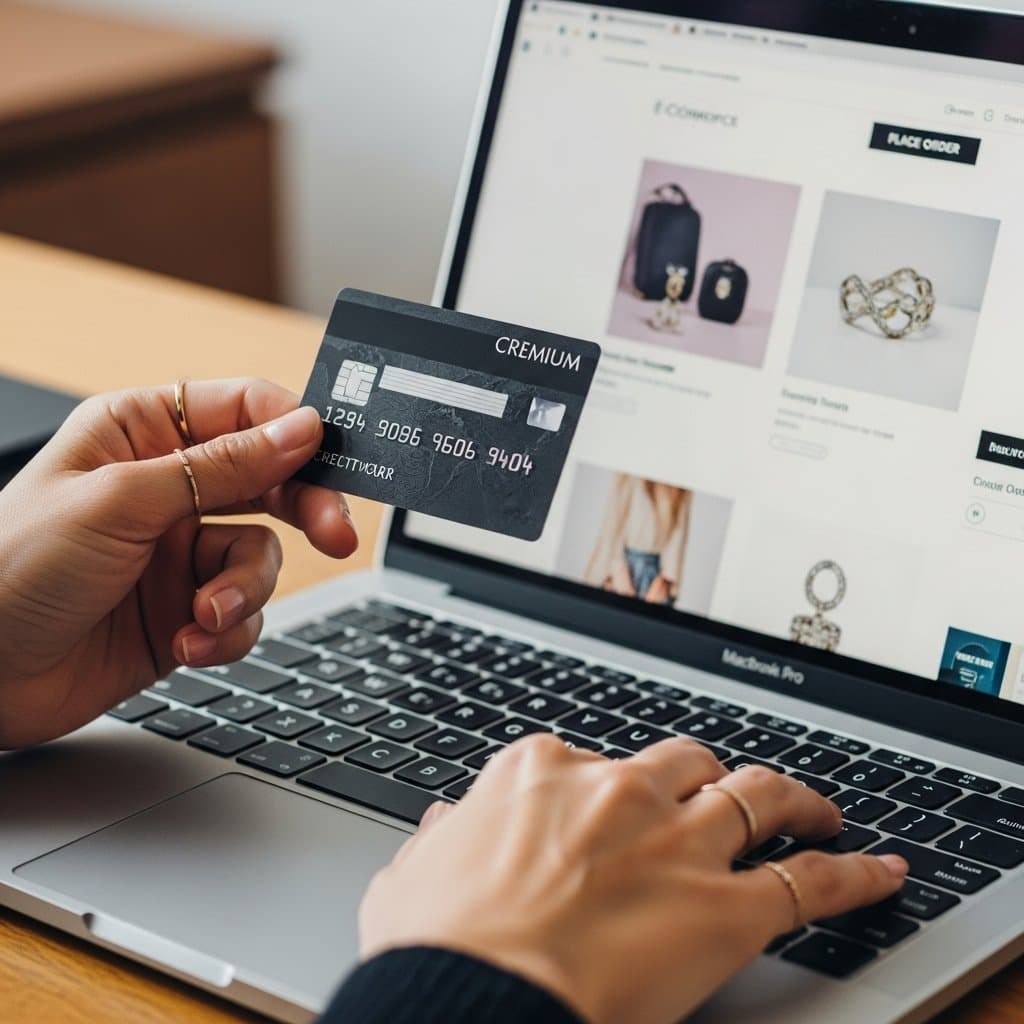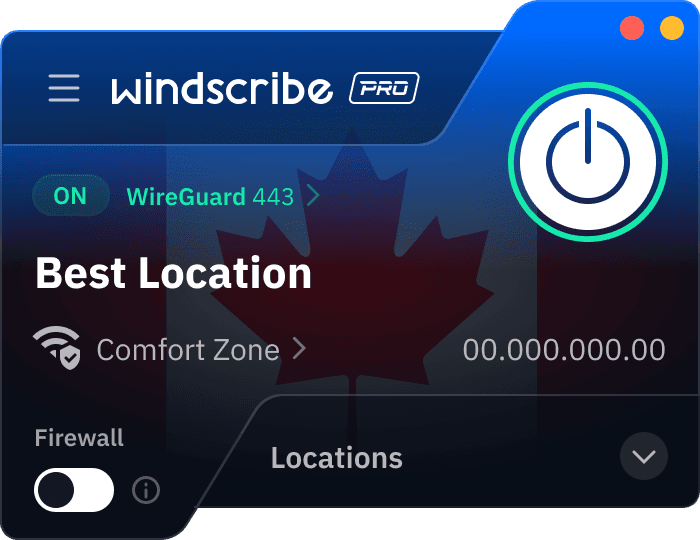
Find the lowest prices on flights, hotels, and products

Shop from anywhere and bypass region locks

Stop websites from tracking & overcharging you

Secure your payment details on public Wi-Fi networks
Why You Need a VPN for Shopping Online

Price Discrimination
Flights, hotels, and products cost more based on your country. A VPN lets you compare true prices.

Retailer Tracking
Online stores track your activity to show higher prices when you revisit. Block trackers with Windscribe VPN.

Geo-Restricted Stores
Some deals are only available in certain countries. A VPN lets you shop globally.
How Windscribe VPN Helps You Save Money & Shop Safely
- Change Your Location: See the lowest prices by shopping from different regions.
- Block Retailer Tracking: No more "dynamic pricing" tricks.
- Secure Your Transactions: 256-bit encryption keeps your payments private.
- Bypass Geo-Blocks: Shop from stores anywhere in the world.
Example: You’re booking a flight. In one country, it’s $800, but in another, it’s $600. A VPN pays for itself instantly.

Benefits of Using Windscribe VPN for Online Shopping
- Get Exclusive Regional Discounts: Some sites offer cheaper deals to certain countries. Now you can access them.
- Shop Safely on Public Wi-Fi: No more credit card theft or man-in-the-middle attacks.
- Access Region-Restricted Stores: Buy from Amazon, eBay, and other retailers worldwide.

Tips to Find the Best Deals with a VPN
- Clear your browser cache and cookies before starting your search to remove any loose ends.
- Connect to different locations to uncover localized pricing options.
- Compare prices and deals across multiple sites before clicking checkout.

Choose the Right VPN for Online Shopping
Not sure which VPN meets your needs? Picking the right VPN can be hard, but here’s what to look out for:
- Best-in-class privacy and anonymity tools with advanced encryption protocols.
- Global servers, optimized for speed.
- Flexible plans, with no shady re-bill tactics.
- Responsive and helpful customer support.
- Easy to install and get started with.

1
Get the App
2
Sign Up
3
Connect
Loved & Trusted by Over 80 Million Users
Features
6 Encryption Protocols
Widest Server Reach
Most 10 Gbps Servers
Industry-Leading Ad Blocker
Privacy: Audited & Court-Proven
Features
Other VPNs
6 Encryption Protocols
Widest Server Reach
Most 10 Gbps Servers
Industry-Leading Ad Blocker
Privacy: Audited & Court-Proven
FAQ
How Can a VPN Help You Find Cheaper Flights and Hotel Deals?


Airlines and hotel booking sites often display different prices based on your location. This practice, known as dynamic pricing, means travelers from certain countries might pay significantly more for the exact same flight or room.
A VPN lets you appear as if you're browsing from different countries, allowing you to compare actual prices across regions.
For example, booking a flight to Paris while connected to a server in Mexico might show a dramatically lower fare than booking from the US or UK.
Travel companies also track your search history. If you check the same flight multiple times, prices often mysteriously increase due to demand-based algorithms. By using a VPN and clearing your cookies, you appear as a new customer each time, potentially receiving the initial lower offer.
Some of the biggest savings come from booking directly through an airline or hotel's regional website. A VPN lets you access these local sites, where domestic rates can be substantially cheaper than international pricing.
The savings can be remarkable: travelers regularly report finding flights 15-30% cheaper and hotel rooms at significant discounts simply by changing their virtual location with a VPN.
Is it Legal to Use a VPN to Get Better Prices When Shopping Online?


Yes, using a VPN to compare prices across different regions is completely legal in most countries. There's nothing illegal about seeing the prices that retailers show to customers in different locations.
While retailers might not love this practice, you're simply viewing publicly available information that the company itself has chosen to display in various markets. This is similar to how savvy shoppers might visit different physical stores to compare prices.
That said, there's an important distinction between viewing different prices and actually completing purchases. Some services have terms that technically prohibit using VPNs to access regional pricing.
For most everyday shopping, including flights, hotels, and consumer goods, using a VPN to find better deals falls within acceptable use. Millions of consumers do this daily without issue.
The legality becomes more questionable only when it involves circumventing true contractual restrictions or accessing services that are explicitly prohibited in your location due to legal restrictions.
Can a VPN Protect Your Credit Card Information When Shopping Online?


Yes, a VPN provides important protection for your payment information, especially when shopping on public or unsecured networks. It creates an encrypted tunnel for all your internet traffic, including credit card details and personal information.
This encryption is particularly valuable when shopping on public Wi-Fi networks at cafes, airports, or hotels. Without a VPN, hackers on these networks can potentially intercept your payment information during checkout using techniques like "man-in-the-middle" attacks. A VPN's encryption renders this data unreadable to anyone trying to intercept it.
How do Websites Track Your Shopping Habits to Increase Prices?


The most common method uses cookies – small files stored in your browser that contain your search history, viewed products, and other browsing behavior.
When you repeatedly search for a product, retailers interpret this as high interest and may gradually increase the price. This is particularly common with airlines and hotels, where systems recognize your continued searches for specific dates as indication you'll likely book regardless of price increases.
Beyond cookies, sites can identify you through browser fingerprinting – a technique that catalogs your unique combination of browser settings, installed plugins, screen resolution, and operating system. This can track you even after clearing cookies.
Many online stores also adjust prices based on your device type. Shopping on a Mac or high-end iPhone might trigger higher prices than browsing on a budget Android device, as retailers assume different spending capabilities.
Using a VPN effectively counters these tactics by masking your true IP address and location. Combined with clearing cookies and using private browsing mode, this makes you appear as a new visitor each time.








